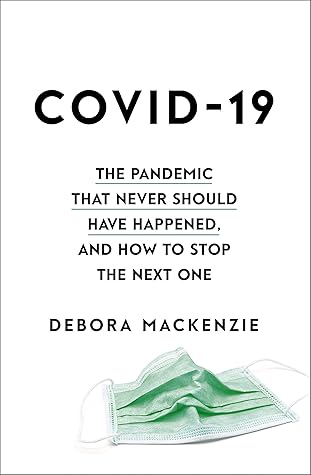The IHR is legally binding, and it requires countries to improve their surveillance and public health capability and to assess their own ability to detect and respond to outbreaks, says David Heymann—but like all international treaties, it has no way to enforce this. But enforcement is not how treaties get things done: verification is. There are already treaties in which countries have set aside one tightly circumscribed area of national sovereignty in the name of global security. We have one governing nuclear material, another on chemical weapons, and another on the ozone layer.
Welcome back. Just a moment while we sign you in to your Goodreads account.


